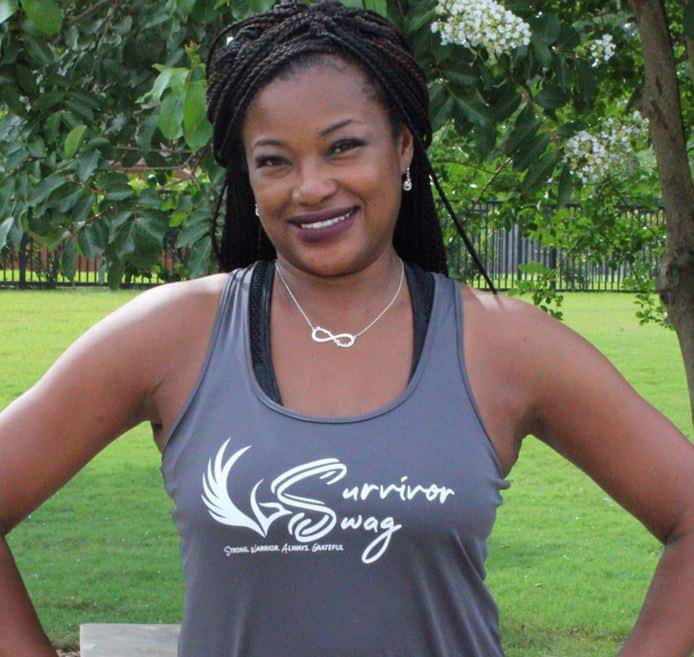
Candace Robinson had her first mammogram when she turned 40. Within weeks, she learned she had breast cancer.
In February 2019, Candace Robinson was diagnosed with ductal carcinoma in situ, stage 0. She’d gone in for her annual well women exam and, because she had recently turned 40, her doctor scheduled her for her first mammogram. “I was like, oh, yeah, it’s time,” Candace recalled. “I have no family history, nothing, so it was just routine.”
Within two days of the mammogram, the doctor called Candace back and said he wanted her to undergo a breast ultrasound. “I didn’t really think anything of it,” she said. “It wasn’t until I was laying on the table and the ultrasound tech said she was going to get the radiologist that I thought, oh. This can’t be good.”
The moment that changed everything for Candace happened while she was sitting at the dinner table with her kids. She’d undergone a biopsy and the doctor called with the results.
“I was stunned. I’m sitting with my kids, my husband wasn’t home yet, and I don’t think I processed it, it didn’t hit me at that moment,” Candace said. As soon as her husband, Jamaal, got home from work, she ushered him into the bedroom. “We closed the door. And it wasn’t until I uttered the words to him—I have breast cancer—that I broke down. It just all came crashing down.”
Candace underwent a bilateral mastectomy with reconstruction. She has not had to undergo additional treatment at this time. “The surgery was over 12 hours, and the recovery was brutal,” Candace said. “But my margins were clear, they did a sentinel node biopsy under my arms and everything was clear in my lymph nodes.”
After her surgery, Candace struggled with depression and weight gain. As a result, she turned to exercise and a healthier lifestyle. “I needed to heal myself from the physical, mental and emotional aspects of the trauma,” she said.
Candace has always been a proponent of yearly checkups, but her experience with breast cancer has made her even more so. “Right when I turned 40, I had that mammogram,” she said. “My breast cancer was caught early because of that, because of early detection.”
She also encourages others to advocate for themselves. “Ask questions, get a second opinion, get genetic testing, know your family history and always, always, always talk to your doctor, keep your team of doctors engaged in your care,” Candace said. “Breast cancer affects everyone. A woman is an extension of her family, and breast cancer affects everyone.”
Statements and opinions expressed are that of the individual and do not express the views or opinions of Susan G. Komen. This information is being provided for educational purposes only and is not to be construed as medical advice. Persons with breast cancer should consult their healthcare provider with specific questions or concerns about their treatment.



